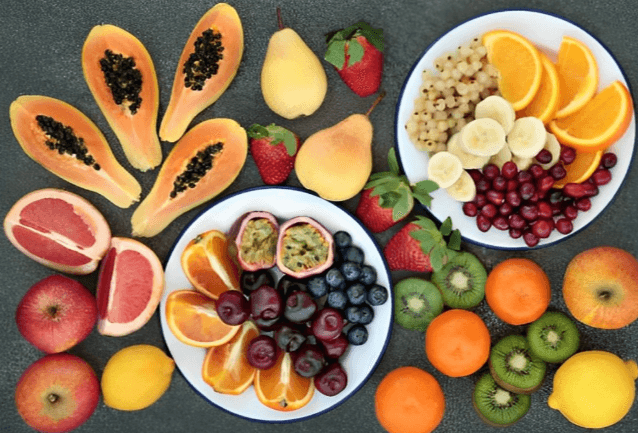wellhealthorganic.com:weight-loss-in-monsoon-these-5-monsoon-fruits-can-help-you-lose-weight

Monsoon, with its refreshing rains and cooler climate, brings a unique set of dietary opportunities, particularly through the bounty of seasonal fruits it offers. These fruits are not just delights to the taste buds but are also packed with nutrients that can aid in weight management. In this comprehensive guide, we delve into how incorporating specific monsoon fruits into your diet can help you shed extra pounds effectively and healthily.
The Significance of Monsoon Fruits in Your Diet
Monsoon fruits come packed with vitamins, minerals, antioxidants, and fibers which are crucial for a balanced diet, particularly when you’re trying to lose weight. The seasonal variation ensures that the fruits are at their peak of freshness and nutritional value, offering a natural way to support diet-induced weight loss. Including these fruits in your diet can also help tackle the general sluggishness and digestive issues often brought about by the monsoon season.
Top 5 Monsoon Fruits for Weight Loss
Mangoes – Nature’s Sweet Aid in Weight Management
Often misconceived solely as a sweet, high-calorie treat, mangoes can actually be a part of a healthy weight loss diet. Rich in vitamins A and C, and containing a decent amount of fiber, mangoes can help in filling you up and maintaining healthy digestive function.
Lychee – Low Calorie Sweetness
Lychees, which are high in water content and low in calories, make a great snack for weight loss. They are also a good source of vitamin C and B-complex vitamins which boost metabolism, crucial for weight loss.
Jamun – The Fiber-Rich Choice
Jamun or Indian blackberry is low in calories and high in fiber, making it an ideal fruit for weight loss. It also has a low glycemic index, which makes it suitable for those with diabetes, helping in managing appetite and weight.
Papaya – The Digestive Booster
The enzyme papain found in papaya is excellent for digestion and can help in breaking down protein faster, making it a great addition to any weight-loss diet. Its high fiber content also helps in maintaining longer satiety levels and controlling cravings.
Pears – The Hydrating Fiber Source
Pears are another fiber-rich fruit that are perfect for the monsoon season. They help in digestive regularity and contain high levels of vitamin C and K, supporting overall health and weight loss.
Understanding the Science of Weight Loss with Monsoon Fruits
Monsoon fruits influence weight loss not just through their low-caloric profiles but through various biochemical pathways. For instance, the fiber in these fruits helps in slowing digestion, which in turn helps in managing insulin levels and reducing fat storage. Their high antioxidant content also combats inflammation, which is often linked to obesity.
Read also City of Heroes Vidiotmaps
Integrating Monsoon Fruits into Daily Meals
Incorporating monsoon fruits into your diet is easy. Start your day with a mango and chia smoothie, snack on lychees or jamun, add papaya to your lunch salad, and end your day with a pear. These fruits can also be creatively used in various recipes like salsas, desserts, and salads, making your weight loss journey not only successful but also enjoyable.
Lifestyle Tips to Enhance Weight Loss During Monsoon
To complement your diet, engage in indoor exercises such as yoga and pilates, which are perfect for the monsoon weather. Also, keep a close eye on hydration; the cooler weather can reduce your urge to drink water, but staying hydrated is crucial for metabolism and detoxification.
Precautions and Tips for Consuming Monsoon Fruits
Always ensure that the fruits are washed thoroughly to avoid any infections, a common issue during the monsoon. Also, balance your intake of fruits with other nutrients; while fruits are beneficial, your body also needs proteins, fats, and carbohydrates.
Beyond Weight Loss – Additional Health Benefits of Monsoon Fruits
Apart from aiding in weight loss, these fruits can enhance your immunity, which is crucial during the damp monsoon season. They also help improve skin health and have anti-inflammatory properties that can ward off various monsoon-related ailments.
Read also City of Heroes Torrent
FAQs About Weight Loss and Monsoon Fruits
- Can eating monsoon fruits alone help me lose weight? Eating monsoon fruits as part of a balanced diet can aid in weight loss, but they should not be the only component. A balanced diet and regular exercise are crucial for effective weight loss.
- Are there any monsoon fruits that might be too high in calories for a weight loss diet? Mangoes are higher in sugar and calories compared to other monsoon fruits but can still be consumed in moderation within a balanced diet.
- How can I incorporate more fruits into my diet without getting bored? Try mixing fruits into different dishes. Use them in salads, smoothies, and even as natural sweeteners in desserts to keep your diet interesting and varied.
- What is the best time to eat fruits for weight loss during monsoon? Fruits are best eaten as snacks between meals or as part of a balanced breakfast to keep energy levels steady throughout the day.
- Can I eat dried fruits during monsoon for weight loss? While dried fruits are nutrient-dense, they are also higher in calories and sugars. It’s best to stick with fresh monsoon fruits, which are lower in calories and high in fiber.
- How do I manage fruit intake if I have diabetes but want to lose weight during monsoon? Choose fruits with a low glycemic index like jamun and pears, and always balance fruit intake with other nutrient-rich foods to maintain blood sugar levels.
Conclusion
Monsoon brings with it a rich variety of fruits that can help not just in weight loss but also in enhancing overall health. By incorporating these fruits into a balanced diet, practicing good hygiene, and coupling your diet with suitable exercise, you can enjoy a healthy and fit monsoon season.




